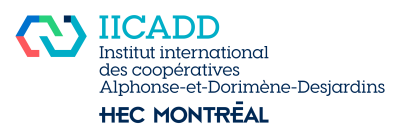STREAM X. Social innovation and circular economy
The circular economy is an alternative system of production and consumption for sustainability transformation. The concept has grown in popularity as a result of increased attention to transition strategies for achieving global sustainability goals and associated targets (Calisto Friant et al., 2020, Morseletto, 2020). However, there is a tendency to reduce circularity to efficiency and technology change without considering complementary changes in organizational models, design and adoption of technology, as well as policies and societal values, in short, a complex systems change that requires new models of production and consumption.
In this light, cooperatives and social and solidarity economy organizations (such as NGOs, self-help groups, associations, among others) are a potential source of much needed social innovation (Gorka Espiau, 2023). However, more research is needed to build theoretical foundations, and to better understand the role of these actors and associated movements for a transformation in direction of circular economies within circular societies (Ziegler et al., 2023).
This stream calls for contributions on the critique of mainstream circular economy and the sources and motivations of unsustainability, actors and forms of organisation along with current inequalities and injustices in current circularity strategies, practices and policies. And for contributions that explore the contributions of alternative organizational and economic models, such as the social and solidarity economy, and the innovations in practices, organizational forms and networks as well as policy contexts that promote such alternatives.
Suggested topics for this panel are:
- Cooperative (and other social economy organization) business models for circular economy
- Typologies of cooperatives and further social and solidarity economy actors for circular economy
- Democratic governance of organizations and networks for circular economy
- Technology development, adoption and resistances of social innovators aiming to advance technology, including innovation and exnovation dynamics
- Policy for circular and social economy
- Analysis of power dynamics in circular and social economy transitions
- Values and cognitive frames (e.g. buen vivir, degrowth, cooperative economy, commons, and capabilities approach) for circular and social economy
- Education and skills development for circular economy
Further topics are welcome!
For more information about submissions, visit: https://www.nunify.com/events/isir1/p/submission
—-
Karina Maldonado-Mariscal
TU Dortmund University, Germany
e-mail: karina.maldonado@tu-dortmund.de
Rafael Ziegler
HEC Montréal, Canada
e-mail: rafael.ziegler@hec.ca
Michael Roy
Glasgow Caledonian University, UK
e-mail: Michael.Roy@gcu.ac.uk
References
Friant, M. C., Vermeulen, W. J., & Salomone, R. (2020). A typology of circular economy discourses: Navigating the diverse visions of a contested paradigm. Resources, Conservation and Recycling, 161, 104917
Gorka Espiau, I. (2023). Cooperatives and social innovation. In Encyclopedia of Social Innovation, ed. Howaldt, J. and Kaletka, C. Chapter 55. pp. 311–316, Cheltenham: Edward Elgar
Morseletto, P. (2020). Targets for a circular economy. Resources, Conservation and Recycling, 153, 104553.
Ziegler, R., Bauwens, T., Roy, M. J., Teasdale, S., Fourrier, A., & Raufflet, E. (2023). Embedding circularity: Theorizing the social economy, its potential, and its challenges. Ecological Economics, 214, 107970.
—-
To find out more information about the ISIRC conference, see here.
